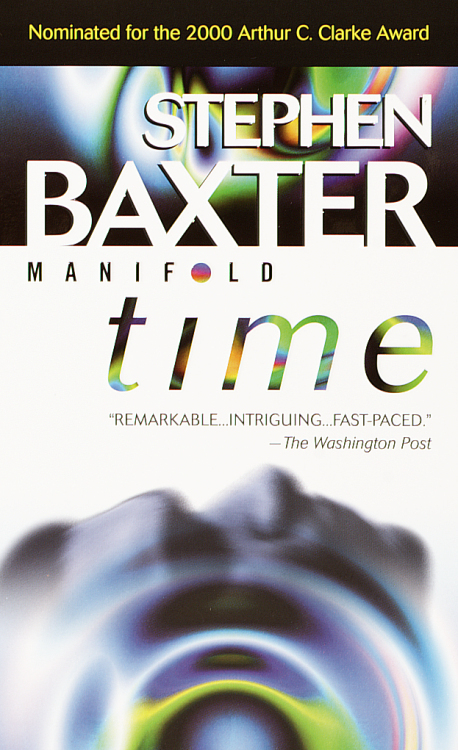Phil in SF hat Manifold: Time von Stephen Baxter besprochen (Manifold, #1)
Do you like potheads going on about mathematics?
2 Sterne
Reid Malenfant has a plan to go to the stars, and it's very Musk-like even before Musk was a thing. OK fine. Most of the first 12% of this book (which is where I pressed the eject button) is taken up by a sophist discussion of the chances of human survival. So here's the argument: either human population grows exponentially/polynomially, it levels off at a sustainable level, or it crashes. Following so far? The fact that you are alive means that the most likely outcome is the third. Here's the logic: In the first two scenarios, the vast majority of all humans will live in the future. So if you picked someone (you) randomly, you'd most likely be in the far future! Because you are here, the most likely outcome is that humans die off soon. In the story, within 240 years at the most.
First of all, this …
Reid Malenfant has a plan to go to the stars, and it's very Musk-like even before Musk was a thing. OK fine. Most of the first 12% of this book (which is where I pressed the eject button) is taken up by a sophist discussion of the chances of human survival. So here's the argument: either human population grows exponentially/polynomially, it levels off at a sustainable level, or it crashes. Following so far? The fact that you are alive means that the most likely outcome is the third. Here's the logic: In the first two scenarios, the vast majority of all humans will live in the future. So if you picked someone (you) randomly, you'd most likely be in the far future! Because you are here, the most likely outcome is that humans die off soon. In the story, within 240 years at the most.
First of all, this is not a plot. Or characters. Or poetic language. Or description. Or ... any of a hundred other things that would be interesting. This is someone smoking too much pot and explaining their pot-infused philosophy to you. If an author wants to set up a coming apocalypse there's so many better ways to do it than this "clever" thought experiment.
Second of all, this therefore means that if humanity does survive into the far future, they have sent a message back in time to us with instructions on how to survive. That whole sophistry just sets up Reid Malenfant's purpose to be to look for the message from the future. This whole first part of the book is just to set that up. That makes no sense and I had to read it all for that reason? Give me a break!
At this point I searched for reviews of the book to see if anyone said the later parts of the book are worth it. And the top review of Manifold: Time that Google referred me to is one from Kirkus. It's fairly spoilery, so if the above BS is actually intriguing to you, don't click the review. Anyway, I've no interest in reading the schmoz that's described there.
DNF at 12%.

